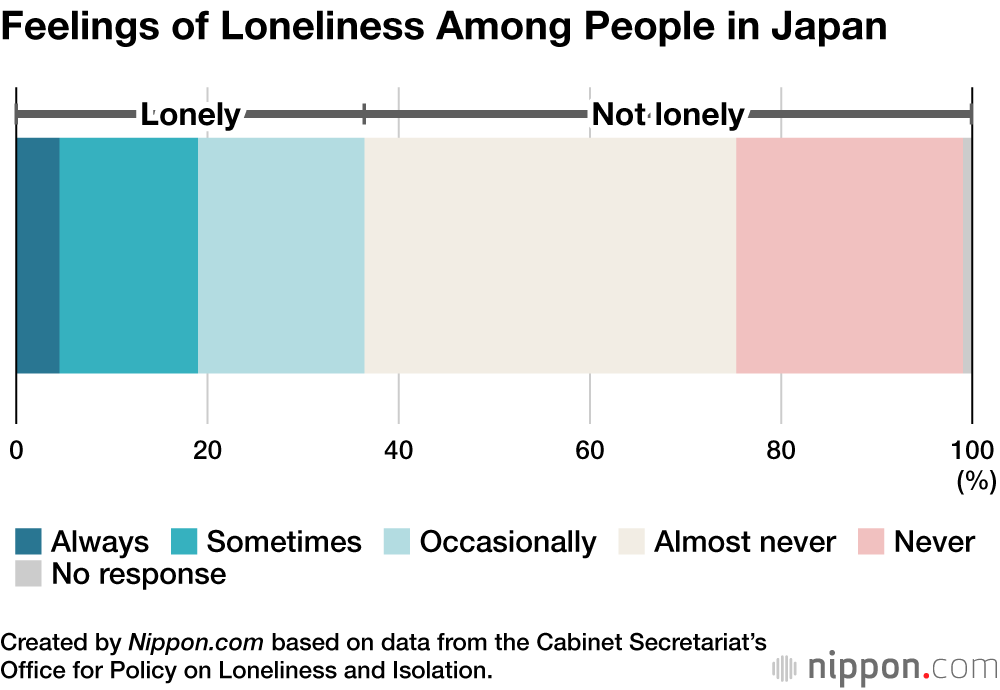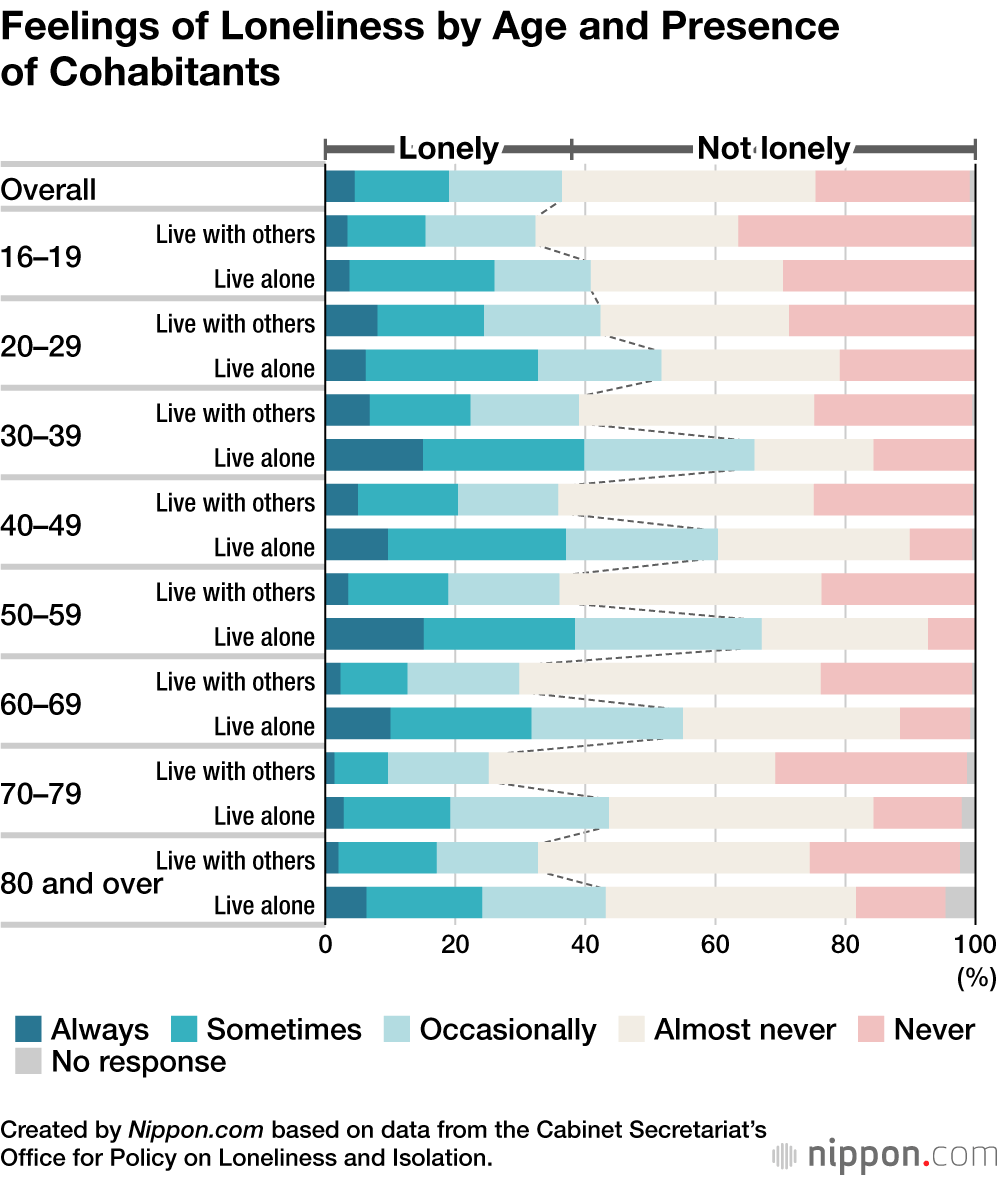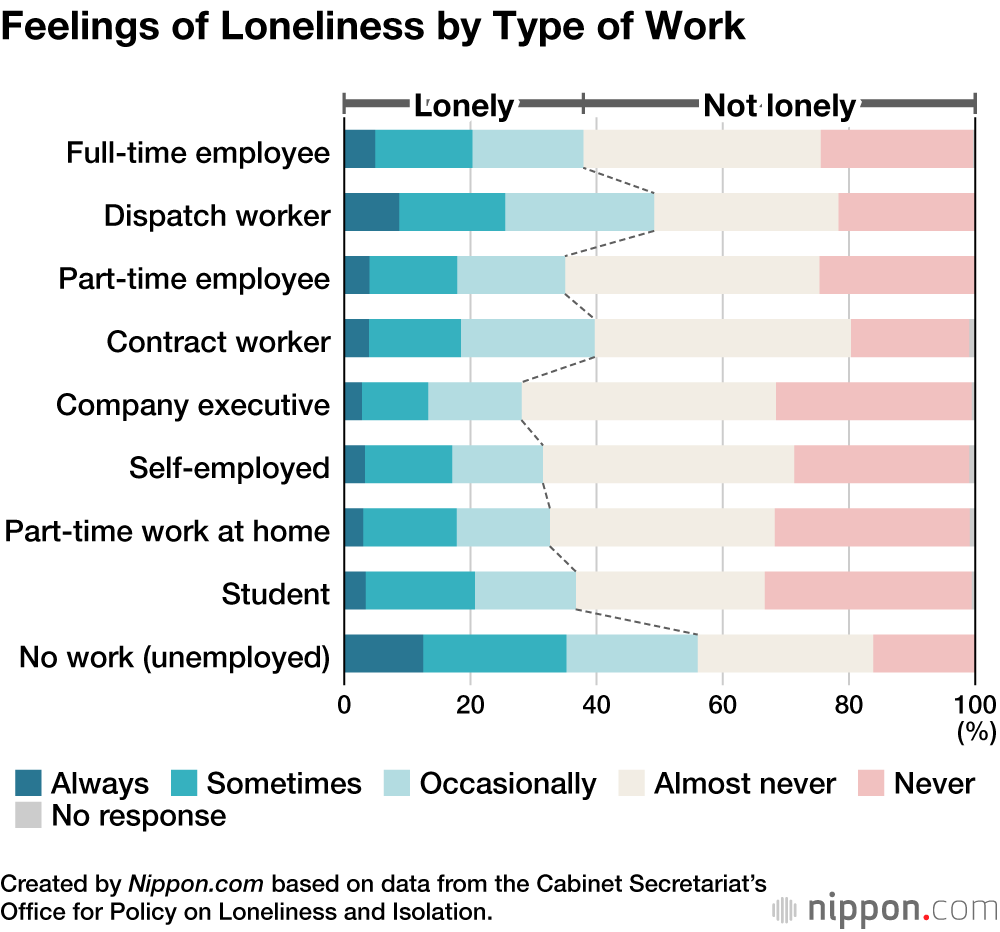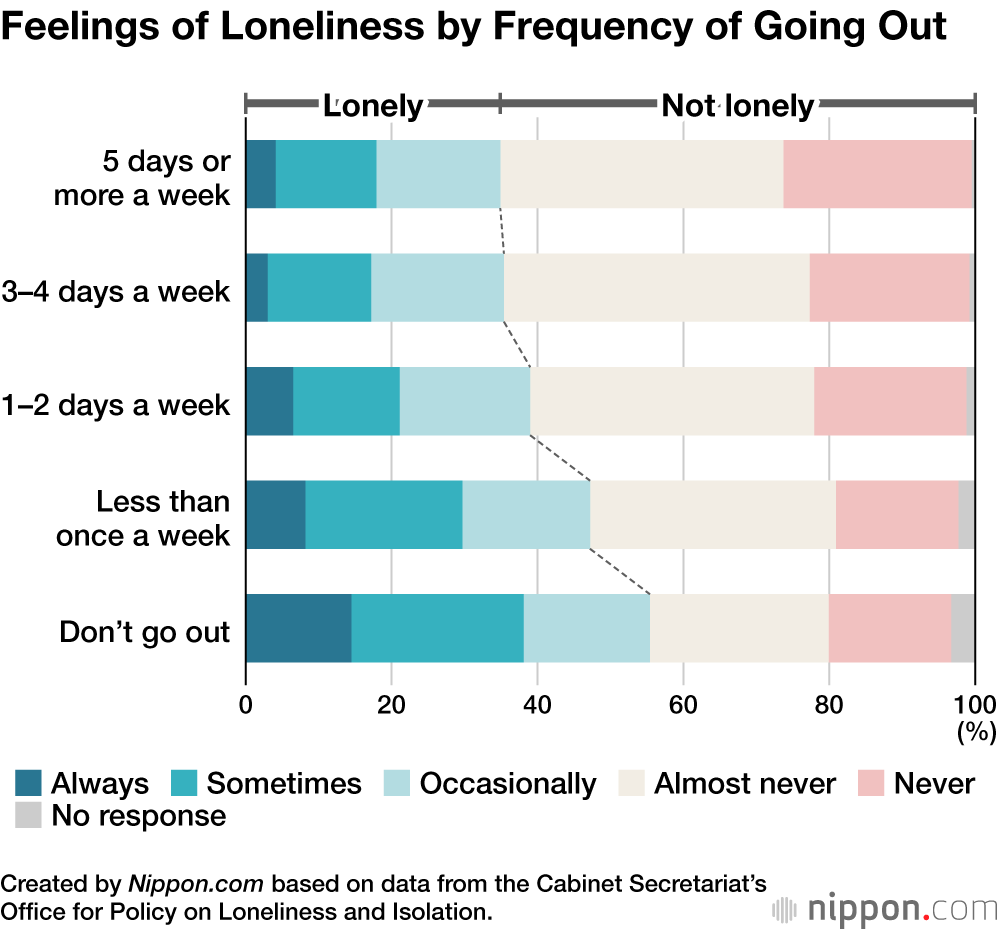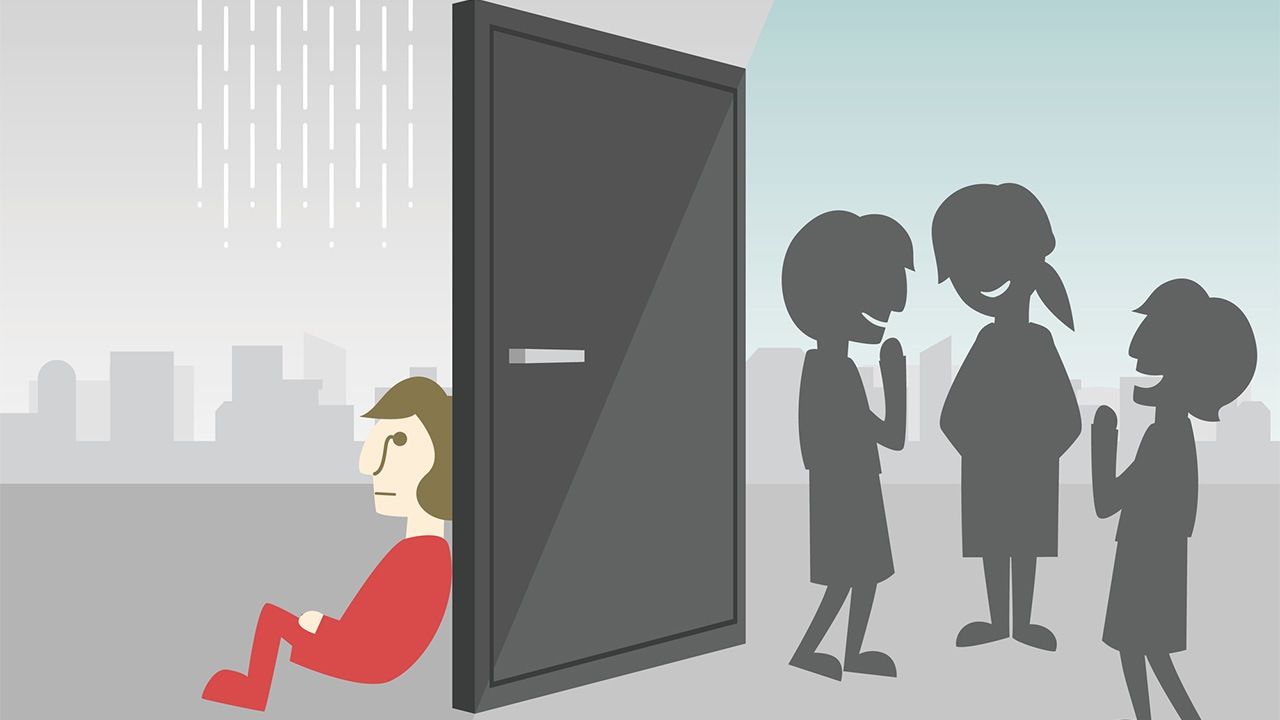
Pandemic Nesting Leading to Increased Loneliness in Japan
Society Family Lifestyle Health- English
- 日本語
- 简体字
- 繁體字
- Français
- Español
- العربية
- Русский
The Japanese government recently conducted its first national survey to assess the issues of loneliness and isolation, which have been exacerbated by the COVID-19 pandemic. The survey, which ran from December 2021 through January of this year, targeted 20,000 randomly selected people aged 16 and over through the post and online, resulting in 11,867 valid responses.
Asked if they felt lonely, respondents who answered either “always” (4.5%), “sometimes” (14.5%), or “occasionally” (17.4%) totaled 36.4%.
At 7.9%, the highest percentage of respondents who always felt lonely were aged in their thirties, followed by 7.7% of people in their twenties. In contrast, the lowest percentage were those in their seventies with 1.8%. However, a closer look at the age groups and whether respondents had people living with them, shows that no matter how old, those with no cohabitants all felt some degree of loneliness.
By type of employment, loneliness was felt more by those who were unemployed or working in temporary positions. There was also a tendency that the lower the annual household income, the more likely the respondent felt alone. People who did not go out as much also felt lonelier.
At the same time, only 8.2% of those who answered that they always felt lonely were getting help with their issues through receiving free support from government agencies or nonprofit and other private organizations. While the government and local authorities have put measures in place to alleviate feelings of loneliness and isolation, it is clear that information about this is not properly reaching those who need it most.
(Translated from Japanese. Banner photo © Pixta.)
